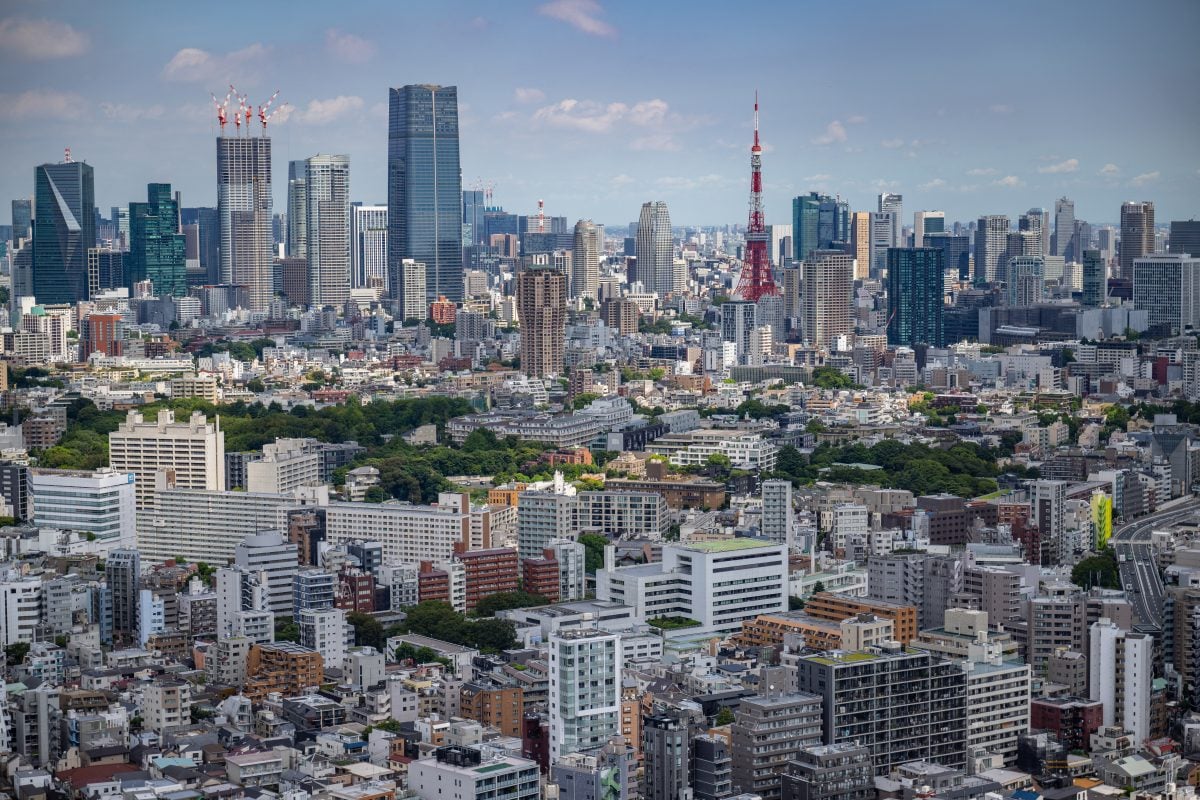The upcoming ninth edition of the Tokyo International Conference on African Development (TICAD 9) will mark the latest step in a journey that began more than 30 years ago. Japan’s efforts to ramp up its engagement with Africa in the 1990s stemmed partly from the country’s own economic situation. The long post-war boom was finally running out of steam, though Japanese institutions had built up massive cash reserves. This created the perfect moment for Japan to search for new markets.
Meanwhile, Japanese businesses did not want to miss out on economic opportunities in Africa, which they realised had the potential for huge growth, at least in the long term. “They started to realise that if they didn’t capture that last frontier they were going to be left behind,” says Emma Ruiters, an expert in Japan-Africa relations and digital and tech transformation associate consultant at the Tony Blair Institute for Global Change.
Building a relationship with Africa has not been easy for Japan. The Land of the Rising Sun lies more than 8,000 kilometres from the nearest part of Africa. To this day there are few direct travel links between Japan and the continent. On top of the physical distance, differences in language and culture have complicated efforts to strengthen ties.
Nevertheless, the TICAD process has helped lay the foundations for the Japan-Africa relationship to grow. Trade and investment have significantly increased in recent decades, while Japanese businesses have begun to gain a more realistic understanding of the opportunities available in Africa.
Modest beginnings
The original TICAD, held in October 1993, was a relatively low-key gathering. The vast majority of the African delegations were headed by ministers of finance or foreign affairs. Only a handful of African presidents, including Ghana’s Jerry Rawlings, Burkina Faso’s Blaise Compaoré and Uganda’s Yoweri Museveni, jetted into Tokyo for the event.
The first TICAD came at a difficult moment for Africa. The continent was grappling with a raft of political and economic challenges following the end of the Cold War and the imposition of “structural adjustment” policies at the behest of the International Monetary Fund.
Japan’s prime minister Morihiro Hosokawa pledged at TICAD to increase aid, while also promising that his country’s friendship with Africa would extend “beyond a mere donor-recipient relationship”. Japan, he said, was committed to supporting Africa’s efforts towards political and economic liberalisation. “After World War II, Japan benefited greatly from the generous assistance from the international community. It is time for my country to return this goodwill by taking an active role in assisting Africa.”
Though Hosokawa himself was ousted as prime minister just a few months later, his words in Tokyo would set the tone for a Japan-Africa relationship that would slowly strengthen over the subsequent three decades.
Turning point
TICAD summits were initially held at five-yearly intervals, attracting steadily increasing participation. The 2013 edition was among the largest international conferences to be hosted by Japan, attracting 4,500 attendees including 39 African leaders. The event was hosted by reformist prime minister Shinzo Abe, who attempted to shift Japan’s focus further from aid towards developing business links. TICAD events were thereafter held at three-yearly intervals, reflecting the increased importance of the Japan-Africa relationship.
Keiichi Shirato, a professor of international relations at Ritsumeikan University in Kyoto, says a key “turning point” came in 2016, when TICAD came to Nairobi. This marked the first time the event was held in Africa. Prior to arriving in the Kenyan capital, Shirato says that the Japanese business community tended to have a “very old fashioned” view of an Africa which they assumed to be totally lacking in infrastructure and basic skills.
He says that the experience of visiting Nairobi, one of the continent’s most modern and cosmopolitan cities, helped to change these outdated perceptions. Many Japanese investors took “inspiration” from TICAD 6 that they could operate successfully in Africa, Shirato says.
A ‘quintessentially Japanese’ approach
The most recent TICAD, held in Tunis three years ago, saw Japan commit an additional $30bn to Africa’s development priorities. The financing package included $5bn in co-financing with the African Development Bank for tackling infrastructure, healthcare and agriculture challenges, along with $4bn for a Green Growth Initiative. Japan also pledged to train an additional 300,000 African professionals in fields ranging from medicine to public administration.
Unfortunately, the event was marred by Japanese prime minister Fumio Kishida contracting Covid, which left him unable to join the summit in person. Kishida instead made a virtual address that alluded heavily to international tensions following the Russian invasion of Ukraine, which had disrupted grain deliveries to Africa.
“We will work together with Africa to overcome challenges in the region and thus strongly support Africa’s development,” he said. “Japan also learns and grows through that experience. Japan will promote its initiatives with approaches quintessentially Japanese, focusing on people. It is my hope that, through a virtuous cycle of growth and distribution, Japan will help realise a resilient Africa that Africa
itself aims to achieve.”
Kishida also used his platform at TICAD 8 to issue a thinly veiled challenge to China’s approach in Africa. The prime minister told the conference that Japan would continue to “strongly support development in Africa on the basis of African ownership,” drawing an implied contrast with China’s alleged practice of locking African countries into a dependent relationship.
Although Kishida missed TICAD 8, he visited Egypt, Ghana, Kenya and Mozambique in May 2023. This marked the first time a Japanese prime minister had conducted a diplomatic tour of Africa since 2014, in a sign of Tokyo’s renewed focus on the continent.
Gradual growth of Japan-Africa ties
Amid increased geopolitical competition in Africa, Japan’s initiative in organising an “Africa plus one” summit has since been copied by several other major powers. The Forum on China-Africa Cooperation has been held triennially since 2000; there have been two Russia-Africa summits since 2019; and Saudi Arabia became the latest country to organise a gathering with African leaders when it hosted a summit in November 2023.
The United States has been more erratic in its engagement: the first US-Africa Leaders Summit in 2014 was not repeated until 2022, and there are no known plans for a follow-up under President Trump.
The value of the partnerships nurtured through TICAD is highlighted by statistics showing that Japanese investment in Africa is on a steadily upward trend. Foreign direct investment from Japan to Africa increased markedly from the 2010s onwards, according to Japanese External Trade Organization data. After a dip during the Covid pandemic, Japanese foreign direct investment net outflows to Africa reached a record level of $2.5bn in 2023.
There is, of course, still much work to be done. Trade and investment ties between Japan and Africa have reached only a fraction of their potential. Indeed, Japanese companies have consistently invested far more in the city state of Singapore than in the entire African continent. UNCTAD data shows that Japan is not among the top ten sources of foreign direct investment in Africa. As TICAD 9 opens in Yokohama, the opportunity to unleash the full potential of the Japan-Africa relationship will be front of mind.
Want to continue reading? Subscribe today.
You've read all your free articles for this month! Subscribe now to enjoy full access to our content.
Digital Monthly
£8.00 / month
Receive full unlimited access to our articles, opinions, podcasts and more.
Digital Yearly
£70.00 / year
Our best value offer - save £26 and gain access to all of our digital content for an entire year!

 Sign in with Google
Sign in with Google 



